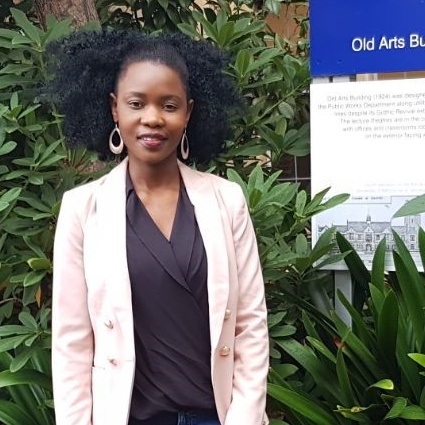Palikena Kaude receives a Student Engagement Grant
Palikena’s project aims to promote hygiene and sanitation among young girls in Malawi.

Palikena Portpher Kaude, a Malawian awardee studying the Master of Development Studies, has been named as a 2018 recipient of the University of Melbourne Student Engagement Grant Program. Student Engagement Grants support initiatives led by students in their local, national or international community. They enable the implementation of activities which create a constructive community impact and which address important social, economic, environmental or cultural issues.
Palikena’s project, “Youth in Lead School Hub project”, aims to promote menstrual hygiene among young girls in Malawi, through the installation of a Menstrual Hygiene Unit at Mpalale School Dedza District. The project involves the initiation and training of a sanitation youth club, and serves to instil a sense of organisational leadership among youths to address social challenges. It will be implemented in partnership with WeCare Youth Organisation and supported by the University of Melbourne Student Engagement Grant Program.
Below, Palikena shares her motivation for this project:
"I was motivated to apply for the University of Melbourne Student Engagement Grant Program as I saw an opportunity to apply theory into practice, especially with regards to project design and resource mobilisation. My previous work experience and current course at the University of Melbourne has influenced my understanding that development is a humanitarian action that every human being is part of and responsible for. I believe we all need to grasp this cause and act in every way possible, thus creating space that we and others need.
My project aims to improve access to education through improved sanitary facilities among girls in Malawi, by installing a Menstrual Hygiene Unit at a school for 433 girls. This is in line with one of the United Nations’ Sustainable Development Goals, “Ensure inclusive and equitable quality education and promote lifelong learning opportunities for all”. At the same time, it promotes gender equality in a resource limited society. The idea for this concept came from evidence in UNICEF reports of increased school dropouts among girls due to limited access to improved sanitary facilities, especially during menstruation. Schools may have few toilets, and girls may be required to share toilets with boys, meaning they have no privacy to wash.
It has always been my passion to engage with local marginalised communities, especially young girls. I want to give back to my community through my studies and at the same time prepare myself for a future career in the development sector."